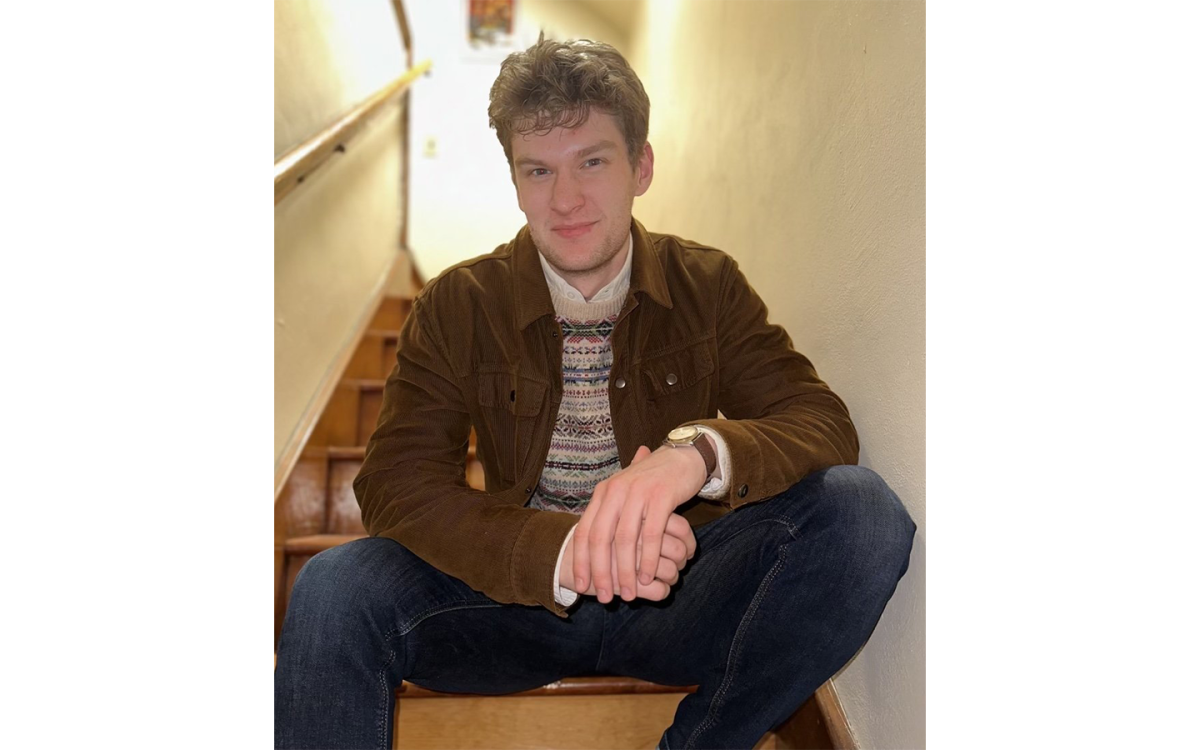Editor’s note: This Q&A is lightly edited for clarity and style.
University of Wisconsin student Jack Ohly’s podcast was named one of the top 10 best college podcasts in America. Ohly competed in NPR’s College Podcast Challenge, an annual competition showcasing the most compelling and thoughtful reporting or personal stories.
Ohly is the creator of “All Good Things,” a podcast centered around the technologies of the past, present and future — explaining their relevance in the world today.
Tell me about yourself.
I’m Jack Ohly. I’m a senior at UW. Right now, I’m double majoring in mechanical engineering and communication arts with a concentration in radio-television film. I grew up in the Madison area, in Middleton, Wisconsin.
What inspired you to start this podcast?
I was inspired to start the podcast by taking a podcast course at the UW called Comm Arts 449, Sound Cultures. In that class, we create a podcast and this was a component of it. I thought of the idea and then I made a sample. Then, when this competition arose, I went back and edited and changed and revised my podcast, and the ideas I had in the course, and then submitted it.
How do you go about researching and finding ideas for your podcast?
I’m a maker at heart. I was interested in film and engineering, I used to make stuff. I was looking at technologies and things I’ve been familiar with, either as a kid or I’ve heard of or experienced in my studies that interested me, but for some reason or another, are not really used anymore. And I was curious, asking myself “Well, why don’t we use this technology anymore, why isn’t this implemented in different processes?” I was discovering that and trying to figure out what’s not used and what paved the way for new technologies to come about.
https://badgerherald.com/news/2024/03/05/five-women-in-construction-featured-as-madison-celebrates-national-women-in-construction-week/
What does it mean to be a finalist for this NPR podcast competition, and could you tell me a little bit about the process of taking part in the competition?
It’s a big honor. I feel really appreciative and I am really appreciative of my professor, who is my mentor in the podcasting course, and both my parents for really helping me out and guiding me, listening to NPR, things like that. And being able to see this competition and be aware it even existed.
The competition had guidelines, so I went back and my podcast I created in the course is something that didn’t really fit all the guidelines. Over winter break, I went and I re-recorded and re-edited some things to make a new podcast to submit for the competition. Then, I posted it on SoundCloud and submitted it to NPR. I kind of forgot about it, I didn’t really think much was going to happen. Then, I received a call from NPR a couple of weeks ago notifying me I was in the top 10. That got me really excited and I was really excited to hear all the other podcasts.
Do you have a favorite episode or element that stands out to you?
I am a really big fan of the sound design of “All Good Things.” That’s one of my favorite parts and something I really work on and I spend a lot of time on. I think it’s really cool to really be enveloped in the sound of the podcast and kind of forget about what you’re doing and just listen to the podcast.
The music is one component of sound design, also things like sound effects. In the podcast, I have had things like AI talking, a book slamming or a piano playing, in addition to background music. Things like that enhance the experience of listening to podcasts, so it’s just not me talking for three minutes straight.
Why are past technologies still relevant today, and what can we learn from them?
Past technologies are really important because that’s what current technologies are built on. It goes back to learning and appreciating history because these things were made for a reason and created for a reason. Going back and understanding why they were in place and what they did gives you a better understanding to look to the future and then create future technologies. As an engineer, that’s something I was looking to do. Appreciating and figuring out how things work is the first step in creating something new.
How do you hope your podcast will evolve in the future?
I’m hoping to evolve it into a longer form, about 15 to 20 minutes an episode. My goal is to get more in depth into these topics, talking to experts, things like that. One thing I really want people to take away from this is that we live in a culture where things move really fast. People buy new phones and everything goes a million miles a minute, very materialistic. This just goes back and makes you appreciate the things you maybe forgot about and could still even be of use. You don’t need to throw out the record player. You can still use it to listen to music, right?
Who are your biggest inspirations in the podcast field?
I’d say Roman Mars from “99 PI.” I love that podcast and he’s got a great radio voice, one of the best in the business.
How can students follow your work?
You can follow me on SoundCloud, where the podcast was posted. I’m also on Instagram and I have my own website.












